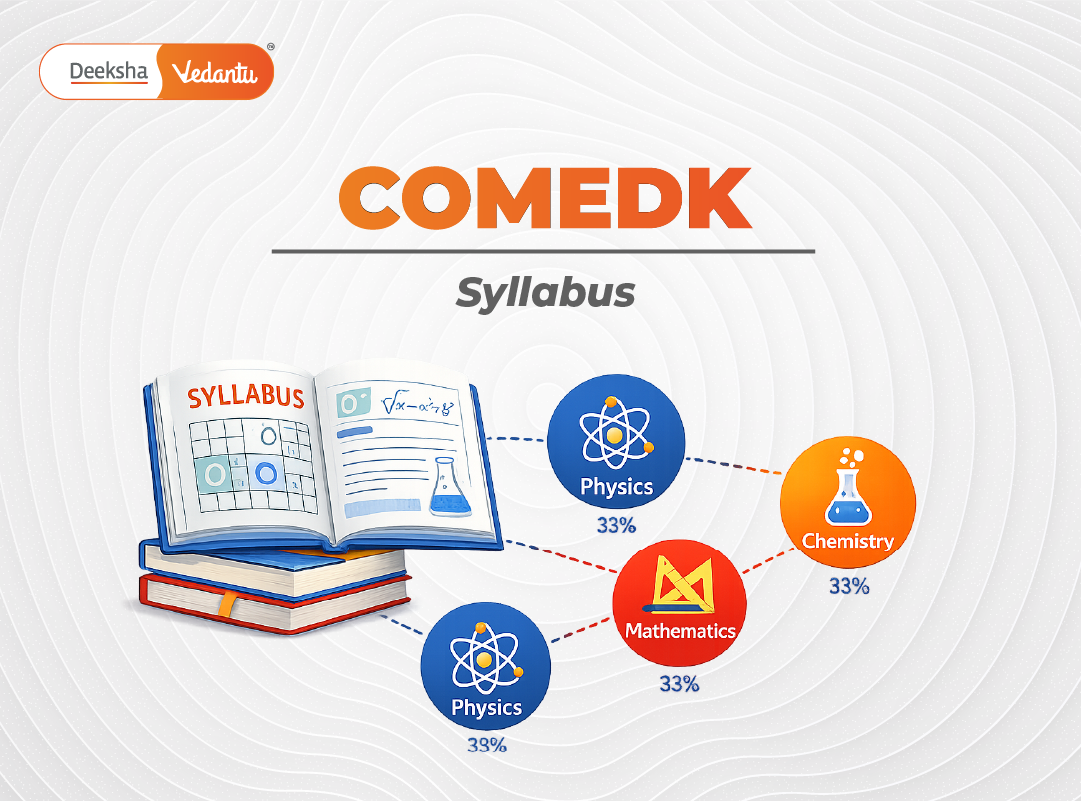After Class 10, students aiming to pursue engineering or medicine face one of the most important decisions of their academic life: Should they enroll in a PU college with integrated coaching, or continue in a regular school and join a separate coaching center for JEE/NEET prep? The answer to this question depends on multiple factors such as learning style, time availability, financial considerations, and long-term academic goals.
This comprehensive guide explores the differences between integrated PU colleges and regular coaching centers, comparing their advantages and limitations across critical factors. Our goal is to help students and parents make informed, personalized decisions that maximize academic success and well-being.
Explore Deeksha Vedantu Long Term NEET Coaching to boost your NEET Scores today.
What Are PU Colleges with Integrated Coaching?
PU (Pre-University) colleges provide the Class 11 and 12 curriculum and simultaneously offer coaching for competitive exams like JEE and NEET. These programs are designed to align both board preparation and entrance exam coaching within a single academic framework.
Institutions like Deeksha Vedantu are leaders in this model. Their integrated coaching ensures students receive focused preparation for board exams and competitive tests in a synchronized manner. This model not only saves time but also streamlines learning, as topics taught for the board syllabus directly complement competitive exam preparation.
Science PU programs offered by Deeksha Vedantu
What Are Regular Coaching Centers?
Regular coaching centers operate separately from a student’s school. These centers typically conduct evening or weekend classes that focus solely on competitive exam prep. While some of these institutions have a strong track record in JEE/NEET results, they require students to manage two distinct academic tracks: one at school and another at the coaching center.
This dual structure can lead to overlapping content, schedule conflicts, physical exhaustion, and reduced effectiveness, especially if the school and coaching follow different teaching methodologies or timelines.
Key Comparison: PU Colleges vs Regular Coaching Centers
1. Academic Synchronization
- PU Colleges: Board and competitive syllabi are strategically aligned. This reduces duplication, promotes deeper understanding, and ensures better time utilization.
- Coaching Centers: Disconnected academic plans may confuse students as they switch between school and coaching content, affecting clarity and retention.
2. Time Management
- PU Colleges: Integrated classes reduce travel and allow more time for self-study, revision, rest, and extra-curricular activities.
- Coaching Centers: Managing school, commuting, and coaching classes can be draining and lead to burnout, especially during Class 12.
3. Quality of Mentorship and Faculty Interaction
- PU Colleges: Students benefit from the continuous presence of faculty who are involved in both academics and coaching, enabling personalized guidance.
- Coaching Centers: Faculty are generally available only during scheduled class hours, limiting access to doubt clarification and mentoring.
4. Evaluation and Progress Tracking
- PU Colleges: Unified assessment systems track a student’s performance in both board and competitive formats. Reports are more holistic and actionable.
- Coaching Centers: Students receive separate feedback from school and coaching, which can lead to inconsistencies in performance analysis.
5. Peer Learning Environment
- PU Colleges: Being surrounded by peers with shared goals fosters healthy competition, group learning, and focused discussions.
- Coaching Centers: Diverse student groups can be either stimulating or distracting, depending on the classroom culture and discipline.
6. Financial Investment
- PU Colleges: Bundled pricing for academics, coaching, study materials, and residential facilities often makes integrated PU programs more cost-effective.
- Coaching Centers: Separate payments for school tuition, coaching fees, commuting, and materials increase the total cost significantly.
7. Structure and Lifestyle
- PU Colleges: Structured routines with fixed hours for academics, physical activity, breaks, and sleep contribute to healthier habits and better learning outcomes.
- Coaching Centers: Unstructured days with long hours of study and commuting can lead to poor sleep, low energy levels, and mental fatigue.
8. Emotional Support and Stress Management
- PU Colleges: Include in-house counseling, stress-relief activities, and mentorship programs to support student mental health.
- Coaching Centers: Focus is largely academic; less emphasis is placed on student well-being and emotional growth.
9. Parental Engagement
- PU Colleges: Maintain strong communication with parents through regular updates, meetings, and performance reviews.
- Coaching Centers: Operate independently from school systems, leading to reduced coordination between teachers and parents.
Commerce PU courses at Deeksha Vedantu
What Should You Consider Before Choosing?
Learning Style and Self-Discipline
Are you someone who needs structured guidance, or can you manage independent study effectively? PU colleges offer a tightly-knit academic schedule, while coaching centers offer more flexibility that requires strong self-discipline.
Distance and Daily Routine
If long travel times impact your energy levels and revision time, a PU college with everything under one roof can help you save time and perform better.
Career Goals and Academic Rigor
If your career goal demands excellence in both board and competitive exams, an integrated program is ideal. It removes distractions, overlaps, and scheduling conflicts.
Lifestyle and Personality
Students who prefer community learning and routine-based environments will thrive in integrated residential PU colleges. Independent learners may prefer customizing their own prep timelines.
FAQs: PU Colleges vs Coaching Centers for JEE/NEET
1. Is integrated coaching better than separate coaching?
Yes. It offers a unified learning experience, improves academic efficiency, and reduces duplication. Most students benefit from having one consistent academic team.
2. Are PU colleges too strict?
Modern PU colleges provide a balanced environment with discipline, yet flexibility. Recreational breaks, fests, and mentorship ensure students remain motivated and engaged.
3. Can I crack JEE/NEET without formal coaching?
While it’s possible with discipline and high-quality self-study resources, most students benefit from structured support that boosts motivation, reduces errors, and accelerates preparation.
4. What is more economical in the long term?
Integrated PU colleges are usually more budget-friendly due to bundled fees for coaching, hostel, food, and facilities. The combined approach is more cost-effective than managing separate payments.
5. Will I miss out on school activities in a PU setup?
Not at all. Most PU colleges offer a vibrant ecosystem with sports, debates, cultural events, and club activities, making for a well-rounded experience.
Check out our NEET Residential Coaching option for focused preparation.
Conclusion
The choice between PU colleges and regular coaching centers is not a one-size-fits-all decision. However, integrated PU colleges clearly offer several advantages for JEE/NEET aspirants. From aligned academics to better time management, structured mentorship, and holistic development, they create an environment where students can focus and thrive.
At Deeksha Vedantu, our integrated PU programs are designed to balance academic excellence with emotional well-being. With proven results, experienced faculty, and a student-first approach, we help aspirants reach their full potential without compromising health, confidence, or balance.










Get Social